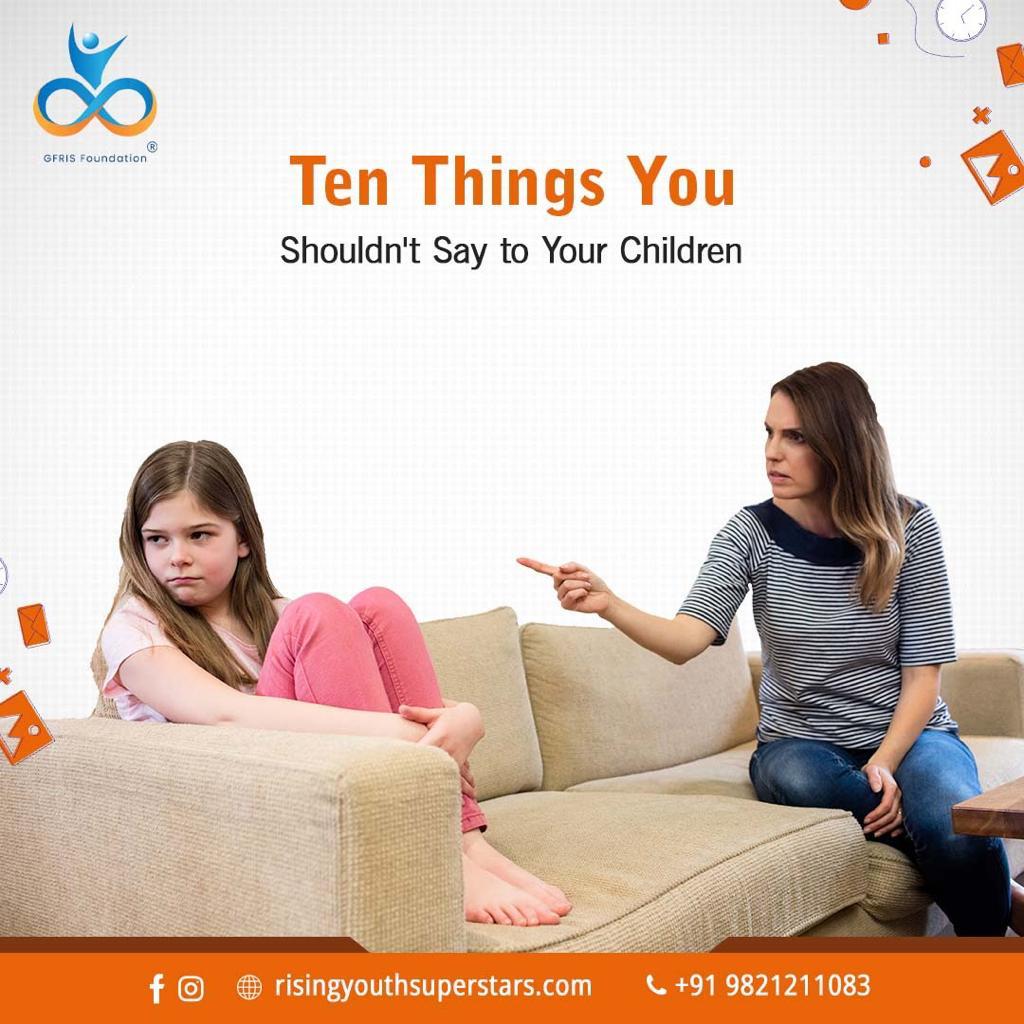Ten Things You Shouldn’t Say To Your Children

All parents are guilty of saying the wrong thing at the wrong time – leaving their kids hurt, angry, or confused. Hurtful words have adverse long-term effects on children – especially when parents use these words, as they are supposed to be a source of support and safety for their kids.
Parental support and approval are essential for your child’s well-being. A parent’s words can be constructive or destructive, and negative comments hamper the child’s self-confidence.
Here are the worst offenders among words parents shouldn’t use:
- Don’t Be Dramatic:
No matter how over-the-top your children’s behaviour may seem, labelling their behaviour dramatic when they are expressing themselves can have long-term consequences.
Children learn about managing emotions from their parents, so if parents dismiss their feelings as dramatic, as adults, they devalue their feelings and do not contribute to any interaction.
- Why Are You Selfish?
Exhibiting selfish behaviour occasionally is natural for kids, but telling them they are selfish can be a source of lifelong trauma. Parents must emphasise they are disappointed with the children’s behaviour and not with them as a person. Clarifying language with your child is essential, as negative words such as lazy, useless, etc., will become a self-fulfilling prophecy.
- You’re Stupid:
Using the word stupid to describe them will permanently scar your children and harm your relationship with them. While you may have said it when overcome by frustration, calling them that repeatedly affects their self-confidence.
- Hurry Up:
Picture this – you are in a hurry to get to work and have to drop the kids off at school, and they seem to be taking forever to get ready. While this can be frustrating, telling them to hurry up won’t make them get ready any faster.
Instead, it just causes stress and anxiety in children who are doing their best. To hurry them up, you could play a game to see who is first out of the door. As parents, it is natural to want your kids to be successful. Teaching them these basic life skills will help them.
- You Never Do Anything Right:
This accusatory statement will never yield a positive response. Parents who use these words with their kids shouldn’t be surprised when they can’t get their kids to cooperate with them. Be accepting of your child, as this will aid in building a good rapport.
- I Don’t Believe You:
To encourage your kids to be open with you, accepting and believing what they say when they approach you would be wise. However, when you say you don’t believe them, you create an atmosphere of distrust. Your kids then learn to hide their actions as they won’t feel safe opening up.
- Let Me Help:
When your child struggles with a task, it can be tempting to help. While this motivation comes from a place of kindness, this eagerness to help will rob your children of the satisfaction they get from completing the task themselves.
- I’m Disappointed In You:
These words are often said when parents get upset with their children and when their children are already feeling bad. When you make children feel they are the reason you are disappointed, it only adds to their pain.
The reality is that parents are responsible for their own feelings, and must work on them. It is not a child’s burden to carry the weight of your emotions. When children grow up feeling responsible for their parent’s feelings, they become people pleasers and struggle with placing boundaries as adults.
- Because I Said So:
This is the most damaging phrase parents can say to children, as it takes away all control from them. While you may not always have time to reason with them, do explain the context behind why you are asking them to do or not do something.
- You’re Fat:
It is essential to encourage a positive body image in your children. So don’t draw attention to your child’s physical appearance. If your child is obese, encourage your child to maintain a healthy lifestyle by being active and having an appropriate diet.
Telling children to their face that they’re fat, aside from being hurtful, won’t motivate them to lose weight.


Leave a Reply